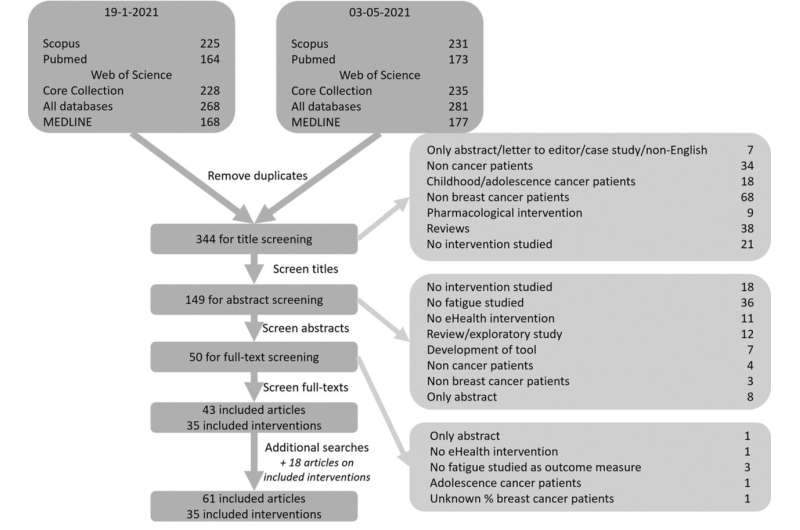Beating cancer-related fatigue with personalized interventions

After diagnosis and treatment of breast cancer, many women suffer from cancer-related fatigue. Twenty percent of the patients are still severely fatigued after ten years. Is there a way to reduce cancer-related fatigue? Ph.D. candidate Lian Beenhakker of the University of Twente compared 35 globally existing eHealth interventions aimed at reducing fatigue.
Beenhakker's publication appeared last week in the European Journal of Cancer Care. Beenhakker says that "Patients and their doctors can use this overview to find an eHealth intervention that fits patients' personal preferences. It's the first time that such an overview has been developed in this way."
Cancer-related fatigue is difficult to treat, first of all, because it is underreported by both patients and their health care professionals. Next, it is also complicated by the fact that not every intervention for fatigue works for every individual, and people have different preferences. Therefore, it is important to give patients personalized advice, taking into account the patient and her preferences.
If a patient follows an intervention that fits her characteristics and preferences, the expectation is that this intervention has a larger effect. With this, more women can receive help in better managing their fatigue symptoms.
In their research, the researchers developed an overview of existing eHealth interventions. These were then divided into different categories and compared on aspects sensitive to patients' preferences. These could be the duration or intensity of an intervention, the associated costs, or whether there is contact with a health care professional or peers.
This comparison showed there is variation between the different interventions. This makes it possible to give personalized treatment recommendations for an intervention that fits the individual patient. For example, some interventions have daily exercises, others have weekly exercises.
Also, (the way of) contact with a health care professional during the intervention varies between interventions as well as the presence of peer support. This research is the first step towards personalized treatment recommendations. In future research, this overview is used to create a model that will automatically generate these recommendations for cancer-related fatigue based on an individual patient profile.
More information: Lian Beenhakker et al, Patient preference attributes in eHealth interventions for cancer‐related fatigue: A scoping review, European Journal of Cancer Care (2022). DOI: 10.1111/ecc.13754















